Participants in the workshop acknowledged the opposition, reservations, and misconceptions that the Synod on Synodality has faced in the past, especially from the Clergy, and underlined the need to ensure that those in Seminaries, especially, are helped to understand their roles and responsibilities in a Synodal Church.
Fr. Uwineza also underlined the need to have a formation manual that accompanies people with various fears, concerns, and anxieties.
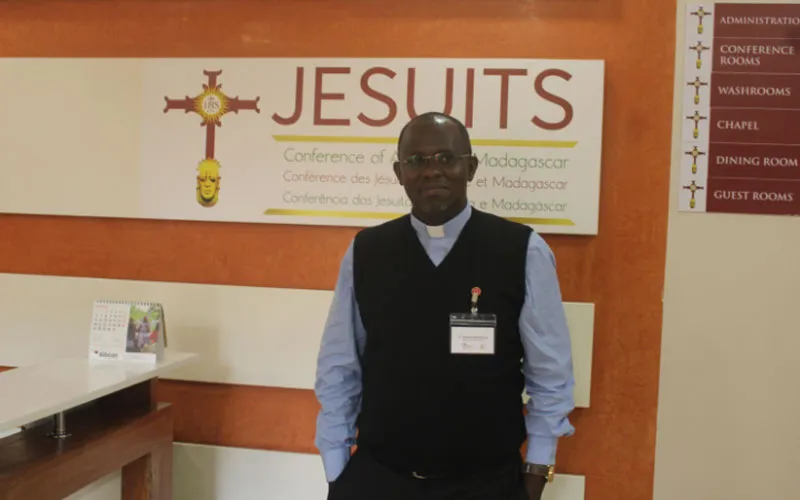 Fr. Marcel Uwineza, the Principal of Hekima University College at the JCAM headquarters in Nairobi, Kenya. Credit: ACI Africa
Fr. Marcel Uwineza, the Principal of Hekima University College at the JCAM headquarters in Nairobi, Kenya. Credit: ACI Africa
“We should anticipate the fears of the people and find possible ways to address them in the formation module,” the Rwandese Priest said, and added, “Reading the DCS, you see the fears that the people have expressed. The module should therefore present the possibility of journeying with those with these fears and concerns.”
Among other characteristics, the Synodality Formation Module will be “authentically African”, making use of African expressions, proverbs, and images that foster Synodality, the members of SRT said.
(Story continues below)
“We need to use terms that Africans can understand. We need to present Synodality in African languages and the continent’s rich proverbs and expressions to enable people to grasp the concept,” Sr. Ngalula said.
“Translating the Synod on Synodality into languages that Africans understand doesn’t have to be word for word. We have our proverbs, images, and expressions that can facilitate the understanding of synodality in the African context. Expressions such as ‘If you want to go fast, walk alone; but if you want to go far, walk together’ is about synodality,” the Catholic Nun said.
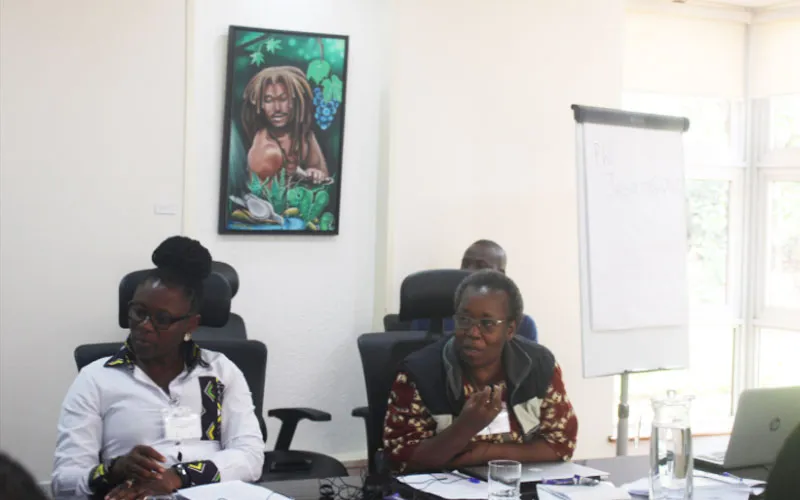 Sr. Josée Ngalula, a lecturer at the University of Congo giving her contribution at Synodality Resource Team (SRT) in Nairobi, Kenya. Credit: ACI Africa
Sr. Josée Ngalula, a lecturer at the University of Congo giving her contribution at Synodality Resource Team (SRT) in Nairobi, Kenya. Credit: ACI Africa
In an interview with ACI Africa, Archbishop Nkea underscored the necessity of the Synodality Formation Module, noting that for Synodality to be understood, there is a need for formation.
“We cannot have formation in Synodality without a manual. Our biggest problem in Africa has been how to pass across the message of Synodality; first as a way of life, secondly as a spirituality, and thirdly as a moderation of government within the Church,” he said, and added, “This manual will give us a sense of direction in passing the message of Synodality.”
Archbishop Nkea said that the Synodality Formation Module would be a rich manual, incorporating experiences from diverse African backgrounds.
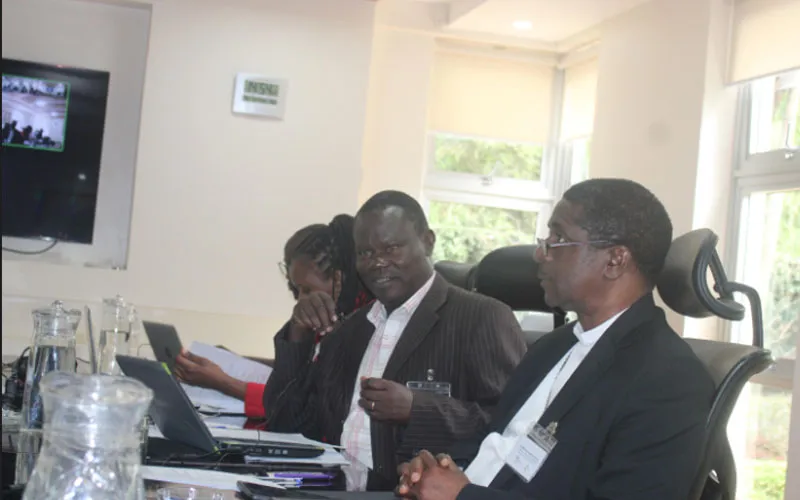 Credit: ACI Africa
Credit: ACI Africa
“Those of us present here are from various backgrounds and our work together has brought on board various aspects of these backgrounds while sharing our experiences with the Synod on Synodality,” the Archbishop of Bamenda said.
“It has been like the 10 blind men who described an elephant and the one who had the tail said the elephant was like a rope. The one who touched the frame of the elephant said it was like a wall and the one who held the leg said it was like a tree and the one who held the ear said it was like a basin. Each one of them had a different experience much as they were talking about the same elephant,” he said.
The Cameroonian Catholic Church leader added, “As an Archbishop, I have shared my experience with Synodality as a Pastor. Theologians, lay professors, and even journalists here have shared their experiences in their varied capabilities. Yet we have all been talking about the same thing. This is the richness that should be expected from the module that we are going to compile soon.”
Expressing gratitude for having participated in the workshop, Archbishop Nkea said that the workshop had been a “light at the end of the tunnel”.
“After the Continental Assembly in Addis Ababa, I was asking myself ‘what next for the Church in Africa regarding Synodality?’. This workshop for me has been the answer to that question; that there is hope and there is light at the end of the tunnel; that as Africa, we need to reflect on what way forward for Synodality,” the Cameroonian Archbishop said.
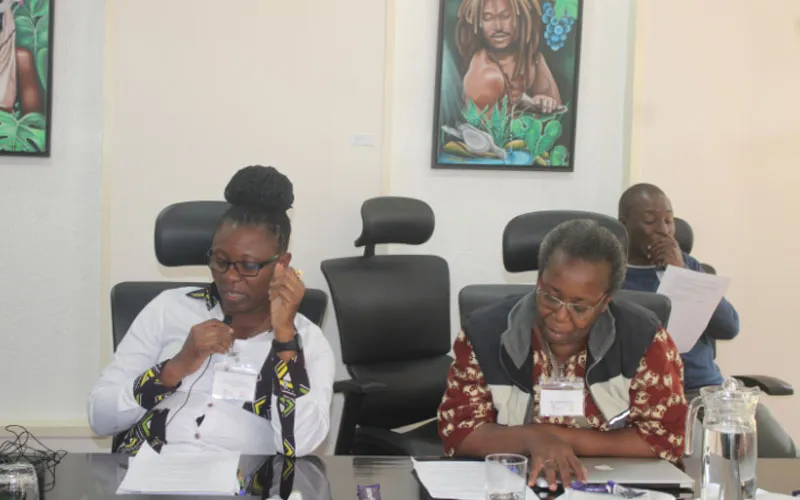 Credit: ACI Africa
Credit: ACI Africa
He added, “What we have done in this workshop is a pledge that Synodality cannot die in Africa. We are adopting it as a style for our Church, as a way for our Church. Synodality is going to enter all the corners of the Church in Africa.”
The SRT constitution had been provided for in the DCS, which has called for the “establishment of Synodality agents and teams” that is, people with expertise in Synodality, who will serve as facilitators, champions, and trainers of trainers.
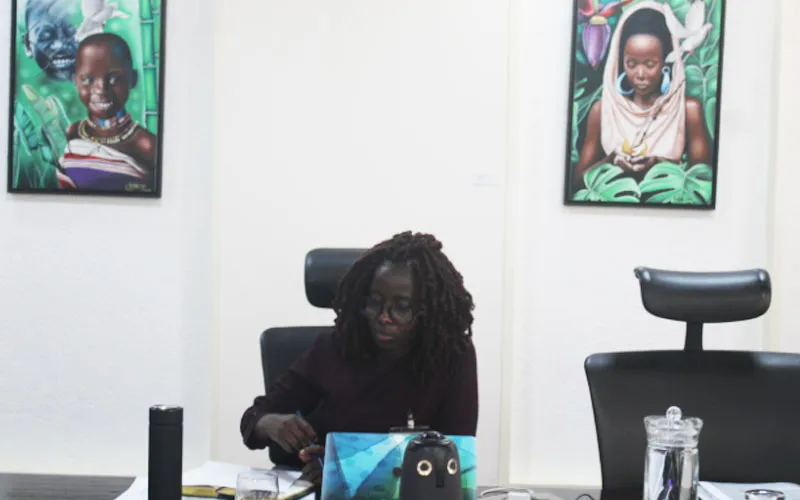 Credit: ACI Africa
Credit: ACI Africa
Fr. Agbonkhianmeghe Orobator from ASI, the outgoing JCAM President, said that the main purpose of the SRT workshop was for the Synod on Synodality thought leaders “to listen to one another, discern and discuss together ways of developing formation in the spirit and practice of Synodality.”
The Nigerian-born member of the Society of Jesus (Jesuits) said that once developed, the Synodality Formation Module will be piloted, preferably in places, he said need greater attention and support to grow in the spirit of Synodality.
Agnes Aineah is a Kenyan journalist with a background in digital and newspaper reporting. She holds a Master of Arts in Digital Journalism from the Aga Khan University, Graduate School of Media and Communications and a Bachelor's Degree in Linguistics, Media and Communications from Kenya's Moi University. Agnes currently serves as a journalist for ACI Africa.



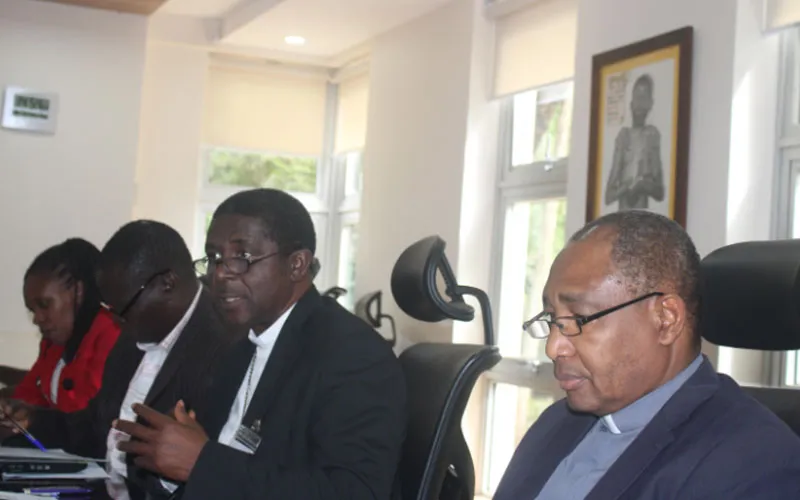
 Credit: ACI Africa
Credit: ACI Africa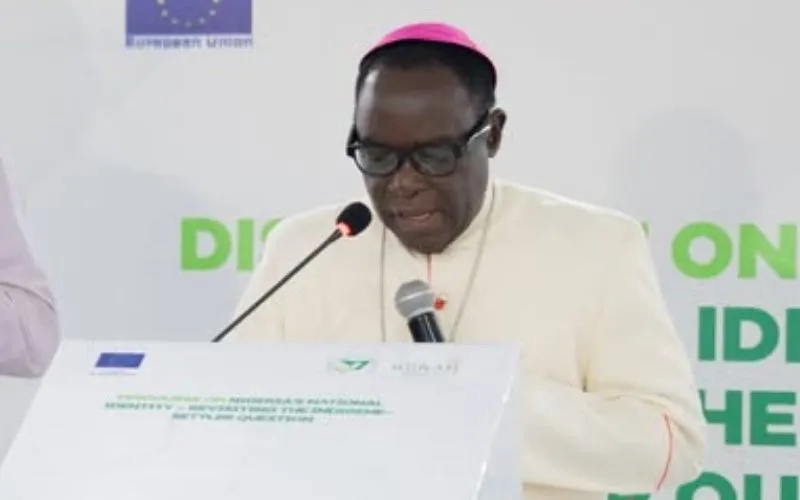
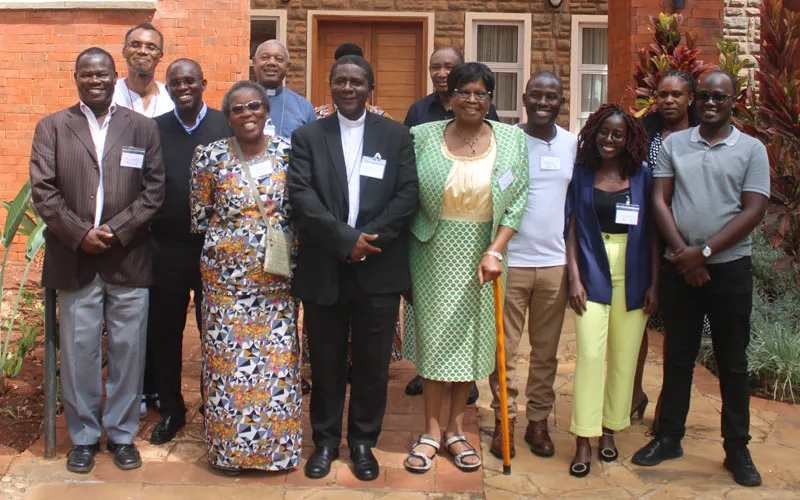 Credit: ACI Africa
Credit: ACI Africa Fr. Marcel Uwineza, the Principal of Hekima University College at the JCAM headquarters in Nairobi, Kenya. Credit: ACI Africa
Fr. Marcel Uwineza, the Principal of Hekima University College at the JCAM headquarters in Nairobi, Kenya. Credit: ACI Africa Sr. Josée Ngalula, a lecturer at the University of Congo giving her contribution at Synodality Resource Team (SRT) in Nairobi, Kenya.
Sr. Josée Ngalula, a lecturer at the University of Congo giving her contribution at Synodality Resource Team (SRT) in Nairobi, Kenya.  Credit: ACI Africa
Credit: ACI Africa Credit: ACI Africa
Credit: ACI Africa Credit: ACI Africa
Credit: ACI Africa


